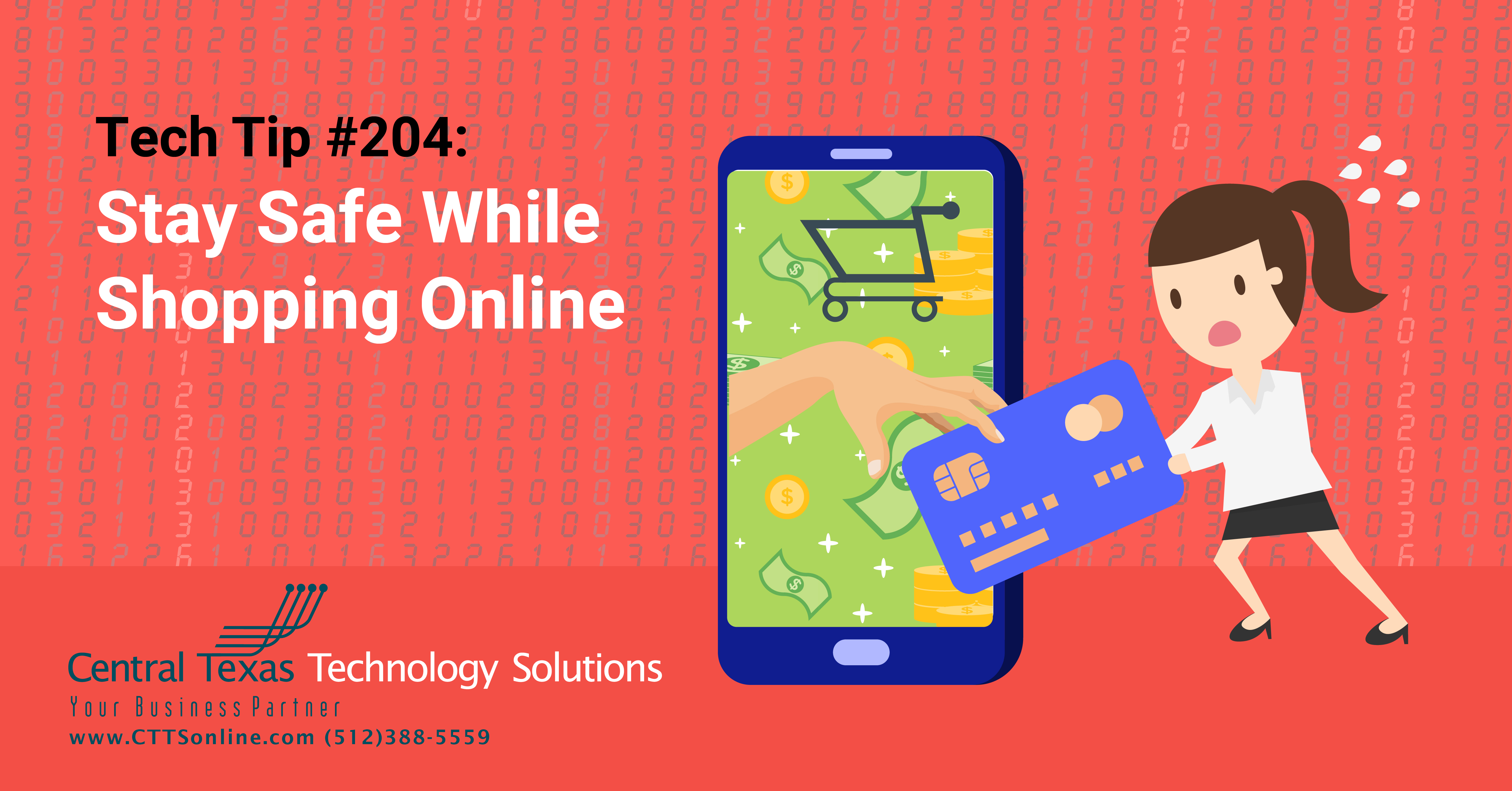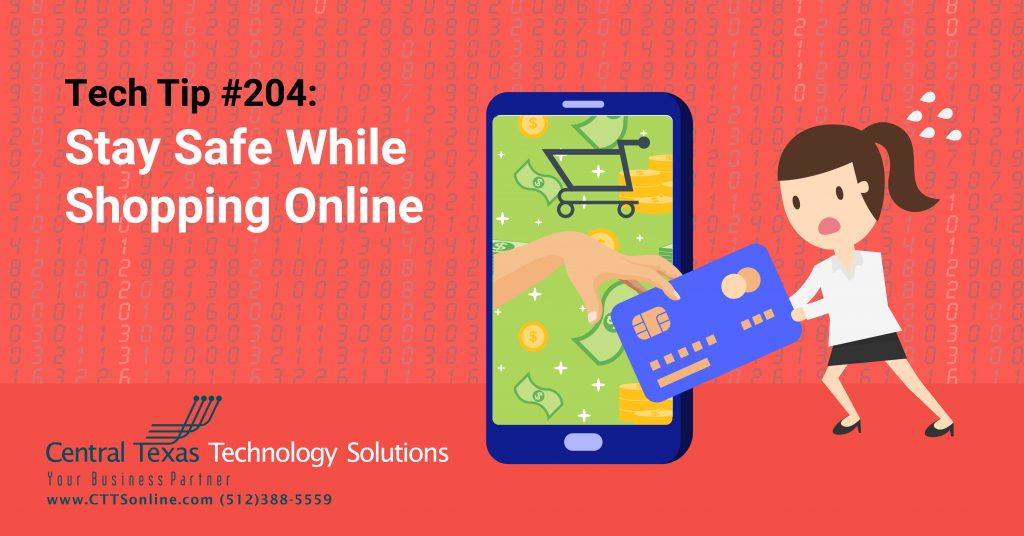
 Whether you're buying gift for your family and friends or maybe even getting yourself a little something extra special this holiday season, you'll want to follow these guidelines to make sure your gift giving doesn't result in you giving up your identity. Here are 3 ways to stay safe online:
Whether you're buying gift for your family and friends or maybe even getting yourself a little something extra special this holiday season, you'll want to follow these guidelines to make sure your gift giving doesn't result in you giving up your identity. Here are 3 ways to stay safe online:
- Check Yourself Before Your Wreck Yourself - Is the device you're using to shop online up-to-date? What about your online accounts, do they each have strong passwords? And even better, if two-factor authentication is available, are you using it? Here are 4 steps you can take make sure your devices are secure:
- Protect your devices by keeping the software up-to-date. These include items like mobile phones, computers, and tablets, but also appliances, electronics, and children’s toys.
- Once you’ve purchased an internet connected device, change the default password and use different and complex passwords for each one. Consider using a password manager to help.
- Check the devices privacy and security settings to make sure you understand how your information will be used and stored. Also make sure you’re not sharing more information than you want or need to provide.
- Enable automatic software updates where applicable, as running the latest version of software helps ensure the manufacturers are still supporting it and providing the latest patches for vulnerabilities.
- Seek Secure Shopping Sources - Think about how you’re searching online. Are you searching from home, on public Wi-Fi? How are you finding the deals? Are you clicking on links in emails? Going to trusted vendors? Have you ever clicked on an ads on a webpages? You wouldn’t go into a store with boarded up windows and without signage, the same rules apply online. If it looks suspicious, something’s probably not right. Here are 7 secure shopping tips to keep in mind this holiday season:
- Before providing any personal or financial information, make sure that you are interacting with a reputable, established vendor.
- Some attackers may try to trick you by creating malicious websites that appear to be legitimate. Always verify the legitimacy before supplying any information. If you’ve never heard of it before, check twice before handing over your information.
- Don’t connect to unsecure public Wi-Fi, especially to do your banking or shopping.
- Most of us receive emails from retailers about special offers during the holidays. Cyber criminals will often send phishing emails—designed to look like they’re from retailers—that have malicious links or that ask for you to input your personal or financial information.
- Don’t click links or download attachments unless you’re confident of where they came from. If you’re unsure if an email is legitimate, type the URL of the retailer or other company into your web browser as opposed to clicking the link.
- Never provide your password, or personal or financial information in response to an unsolicited email. Legitimate businesses will not email you asking for this information.
- Make sure your information is being encrypted. Many sites use secure sockets layer (SSL) to encrypt information. Indications that your information will be encrypted include a URL that begins with “https:” instead of “http:” and a padlock icon. If the padlock is closed, the information is encrypted.
- Is it Secret, Is it Safe? - If you’re going to make that purchase, what information are you handing over? Before providing personal or financial information, check the website’s privacy policy. Make sure you understand how your information will be stored and used, here are 3 ways to get started:
- If you can, use a credit card as opposed to a debit card. There are laws to limit your liability for fraudulent credit card charges, but you may not have the same level of protection for your debit cards. Additionally, because a debit card draws money directly from your bank account, unauthorized charges could leave you with insufficient funds to pay other bills.
- Check your credit card and bank statements for any fraudulent charges. Immediately notify your bank or financial institution and local law enforcement.
- Be wary of emails requesting personal information. Attackers may attempt to gather information by sending emails requesting that you confirm purchase or account information. Legitimate businesses will not solicit this type of information through email. Do not provide sensitive information through email.
If you receive a suspicious email that you think may be a phishing scam, you can report it at https://www.us-cert.gov/report-phishing.
- If you believe your personal or financial information has been stolen, report it right away to your local police and the Federal Trade Commission (FTC). There’s information on the FTC website, https://www.identitytheft.gov/, about how to report.
- Immediately change your passwords, use complex passwords, and use a different one for each account. A password manager can help you do this.
For any organization, data is a valuable asset that needs to be protected at all costs. Contact CTTS now to see how you can keep your employees, customers, and all your business data safe and secure: (512) 388-5559.
CTTS is a complete technology solution provider and the leading IT Support and Managed Service Provider for businesses in the Central Texas area. We're located in Georgetown, TX, but we service all of Central Texas and the surrounding areas, including Round Rock and Austin. Learn more about CTTS here!

By Josh Wilmoth
CEO, Central Texas Technology Solutions
